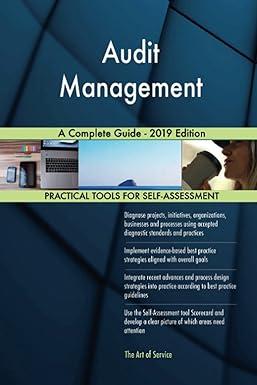Structuring a Keep-or-Drop Product Line Problem with Complementary Effects Shown below is a segmented income statement for Hickory Company's three wooden flooring product lines: Strip
Structuring a Keep-or-Drop Product Line Problem with Complementary Effects
Shown below is a segmented income statement for Hickory Company's three wooden flooring product lines:
| Strip | Plank | Parquet | Total | ||||
| Sales revenue | $400,000 | $200,000 | $300,000 | $900,000 | |||
| Less: Variable expenses | 225,000 | 120,000 | 250,000 | 595,000 | |||
| Contribution margin | $175,000 | $ 80,000 | $ 50,000 | $305,000 | |||
| Less direct fixed expenses: | |||||||
| Machine rent | (5,000) | (20,000) | (30,000) | (55,000) | |||
| Supervision | (15,000) | (10,000) | (5,000) | (30,000) | |||
| Depreciation | (35,000) | (10,000) | (25,000) | (70,000) | |||
| Segment margin | $120,000 | $ 40,000 | $ (10,000) | $150,000 |
Hickory's management is deciding whether to keep or drop the parquet product line. Hickory's parquet flooring product line has a contribution margin of $50,000 (sales of $300,000 less total variable costs of $250,000). All variable costs are relevant.
Relevant fixed costs associated with this line include 80% of parquet's machine rent and all of parquet's supervision salaries. In addition, assume that dropping the parquet product line would reduce sales of the strip line by 22% and sales of the plank line by 20%. All other information remains the same.
Required:
1. If the parquet product line is dropped, what is the contribution margin for the strip line? $
For the plank line? $
2. Which alternative (keep or drop the parquet product line) is now more cost effective and by how much? Keep by $
Step by Step Solution
There are 3 Steps involved in it
Step: 1

See step-by-step solutions with expert insights and AI powered tools for academic success
Step: 2

Step: 3

Ace Your Homework with AI
Get the answers you need in no time with our AI-driven, step-by-step assistance
Get Started


